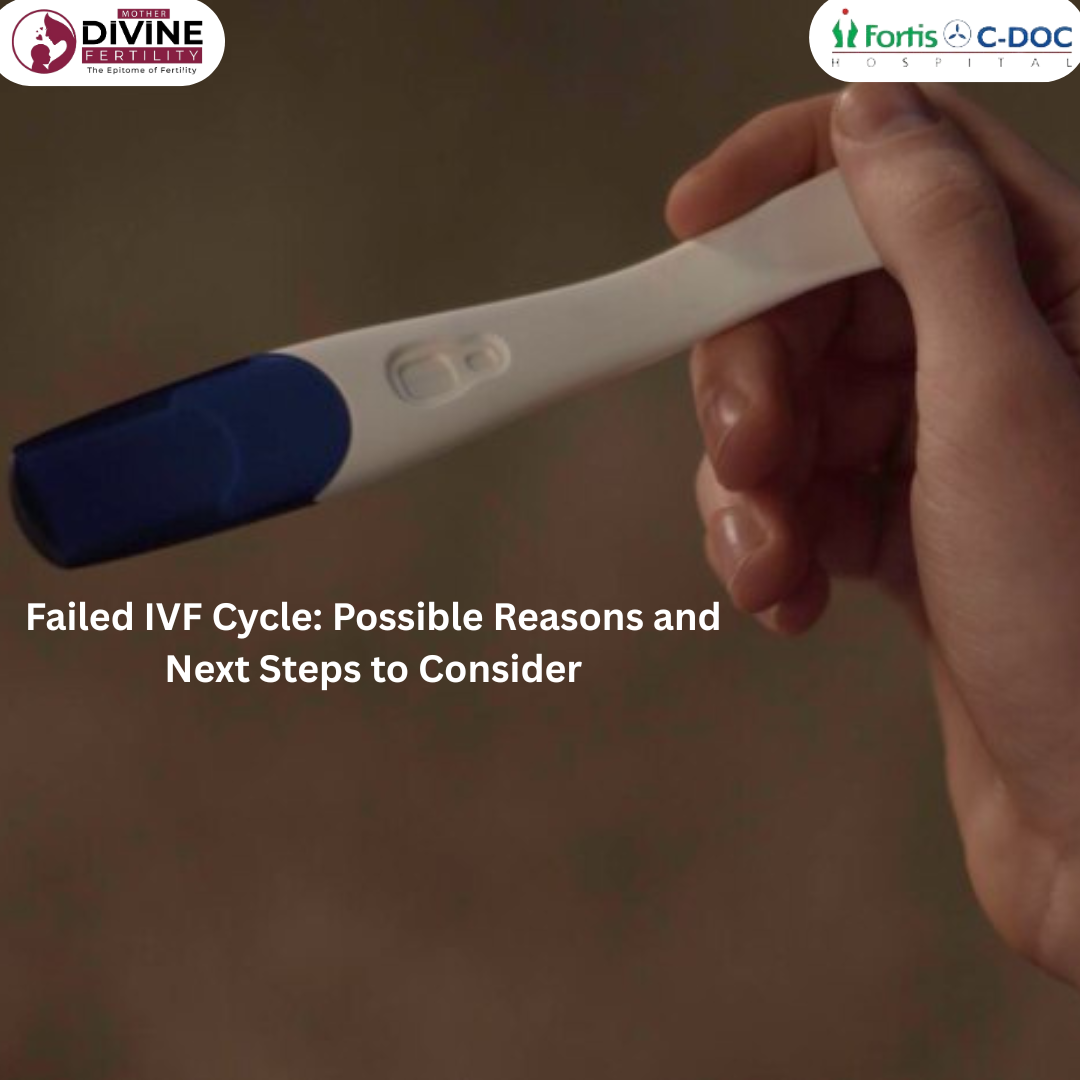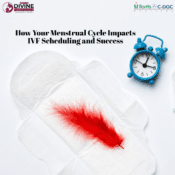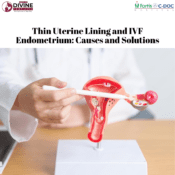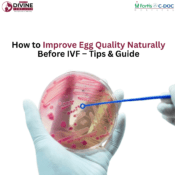

Failed IVF Cycle: Possible Reasons and Next Steps to Consider
1. Introduction
For couples who dream of starting a family, an IVF cycle often represents hope, commitment, and resilience. But when that hope turns into disappointment, it can feel emotionally devastating. A failed IVF cycle is not just a medical setback—it’s a deeply personal and emotional experience that affects both partners.
The journey of IVF treatment in Delhi, or anywhere in the world, can be mentally exhausting and physically taxing. A single cycle involves hormone injections, numerous doctor visits, and emotional anticipation that’s hard to put into words. When the result isn’t what you hoped for, it’s crucial to understand that you're not alone.
This blog aims to guide you through what a failed IVF cycle means, explore IVF failure reasons, and most importantly, help you take thoughtful steps forward—both emotionally and medically.
2. What Is Considered a Failed IVF Cycle?
An IVF cycle is considered unsuccessful when it doesn’t result in a clinical pregnancy. However, not all failures look the same.
2.1 Definitions of IVF Failure
- No Implantation: Embryos are transferred but do not attach to the uterine lining.
- Biochemical Pregnancy: A very early pregnancy where a positive test occurs, but it doesn’t progress.
- Early Miscarriage: Pregnancy begins but ends within the first few weeks.
2.2 Chemical Pregnancy vs Implantation Failure
A chemical pregnancy means the embryo implanted but stopped developing shortly afterward. In implantation failure, the embryo never attaches to the uterus.
2.3 How Common is IVF Failure on the First Try?
Surprisingly, IVF failure after the first attempt is common. Success rates range from 30–50% depending on age, embryo quality, and clinic expertise. In Delhi, even at the best IVF centre in Delhi, success isn’t always immediate—but that doesn’t mean future cycles won’t work.
3. Common Reasons for a Failed IVF Cycle
Understanding the causes of IVF failure is a vital step in planning your next approach. Here are the most commonly encountered reasons:
3.1 Embryo Quality
Not all embryos are genetically normal or capable of developing into a baby. Embryologists assess embryo grading and blastocyst development, but even top-graded embryos can sometimes fail.
3.2 Chromosomal Abnormalities
Even visually perfect embryos may have genetic anomalies. Preimplantation Genetic Testing for Aneuploidy (PGT-A) can help detect these issues before transfer.
3.3 Uterine or Endometrial Issues
A uterus needs to be receptive. Conditions like thin endometrial lining, polyps, fibroids, or intrauterine adhesions can interfere with implantation.
3.4 Egg or Sperm Quality
Poor egg quality is common in women over 35. Likewise, low sperm motility, morphology issues, or DNA fragmentation can reduce embryo viability.
3.5 Hormonal Imbalances
Disorders like PCOS, low progesterone, or thyroid dysfunction can disrupt the delicate hormonal balance required for implantation and embryo support.
3.6 Immunological Issues
Some women have elevated natural killer (NK) cells or autoimmune disorders that can attack the embryo before it implants.
3.7 Blood Clotting Disorders
Conditions like antiphospholipid syndrome and thrombophilia can impair blood flow to the uterus, affecting implantation.
3.8 Lifestyle and Environmental Factors
Smoking, obesity, chronic stress, and poor sleep have all been linked to IVF failure. Even environmental toxins may play a role.
3.9 IVF Protocol or Lab-Related Issues
Sometimes, failure occurs due to protocol errors, timing issues, or lab technique inconsistencies. This highlights the importance of choosing a top IVF centre in Delhi with advanced lab standards.
4. What to Do After a Failed IVF Cycle
4.1 Take Time to Process Emotionally
Grieving is natural. Don’t rush into another cycle before you’re emotionally ready. Give yourself permission to feel.
4.2 Schedule a Review Consultation
Speak with your fertility specialist. Understanding what went wrong can offer clarity and direction.
4.3 Discuss Each Phase of the Cycle
Break down every step—from stimulation to embryo transfer—with your doctor. Pinpointing weak links is crucial for improving next outcomes.
5. Diagnostic Tests After IVF Failure
A comprehensive evaluation can help guide your next steps. Common tests include:
- Recurrent Implantation Failure (RIF) Panel
- Endometrial Receptivity Array (ERA): Determines the best window for embryo transfer.
- Hysteroscopy: Examines the uterus for abnormalities.
- Immune and Clotting Profile: Identifies hidden conditions.
- Sperm DNA Fragmentation Test
- Genetic Testing of Both Partners
These tests are especially useful for repeated failures.
6. Treatment Adjustments for Next Attempt
After identifying IVF failure reasons, your doctor may adjust treatment plans. Common adjustments include:
6.1 Protocol Changes
Altering stimulation protocols or trigger timing can enhance egg yield and quality.
6.2 Donor Options
In cases of severe egg or sperm quality issues, donor eggs or sperm may be considered.
6.3 Frozen Embryo Transfer (FET)
FET allows more flexibility in preparing the uterus, potentially increasing success rates.
6.4 Surrogacy
When uterine issues persist, gestational surrogacy may be the most effective path forward.
6.5 Add-Ons
Consider PGT-A, ERA, or assisted hatching to boost chances.
7. Emotional Support and Coping Strategies
7.1 Acknowledge Grief
It’s okay to feel heartbroken. Grief after a failed IVF cycle is valid and real.
7.2 Seek Professional Counseling
Therapists specializing in fertility can help you navigate this unique grief.
7.3 Join Support Groups
Online forums and local meetups offer community and shared strength. Look for IVF support after failure groups.
7.4 Communicate with Your Partner
Be open and gentle. You’re both experiencing this loss, even if differently.
8. When and How to Try Again
8.1 Medical and Emotional Readiness
Wait until your body and mind feel ready. Most clinics recommend a 1–2 month break between cycles.
8.2 IVF Retry Success
Statistics show that many couples succeed in their second IVF attempt. Persistence, combined with protocol changes, often improves outcomes.
8.3 Mind-Body Connection
Several studies suggest that reducing stress through yoga, mindfulness, or therapy can support fertility success.
10. Choosing the Right Fertility Clinic Matters
After a failed IVF cycle, the fertility clinic you choose can make all the difference.
10.1 Look for Expertise and Advanced Technology
Top clinics use cutting-edge tools, skilled embryologists, and strict lab protocols that minimize error.
10.2 Personalized Care
Every body is different. A customized plan—not a one-size-fits-all approach—is essential for better outcomes.
10.3 Why Choose Mother Divine Fertility
At Mother Divine Fertility, one of the best IVF centres in Delhi, we combine compassion with advanced reproductive medicine. Our high IVF success rate, comprehensive diagnostics, and patient-first philosophy have helped thousands achieve parenthood.
From hormone mapping to donor programs and emotional support, we tailor every journey.
11. Conclusion
A failed IVF cycle can feel like a devastating blow, but it's not the end of your journey. Each setback holds a lesson, and every lesson brings you one step closer to success. Whether it’s adjusting your treatment plan, seeking better diagnostics, or simply allowing time to heal, the path forward is real.
Stay hopeful. IVF is a journey, not a single event. As we often say at Mother Divine Fertility:
FAQs
Is it normal for IVF to fail the first time?
Yes. Most couples do not succeed on their first IVF cycle. Success rates improve in second or third attempts, especially with protocol adjustments.
How soon can I try IVF again?
You can typically try again after one menstrual cycle (around 4–6 weeks), depending on your doctor’s advice and emotional readiness.
Should I switch clinics after a failed cycle?
Not always. But if you feel your concerns weren’t addressed, or if lab standards were lacking, consider switching to a top IVF centre in Delhi.
Can I get pregnant naturally after failing IVF?
Yes, spontaneous pregnancies do occur. A failed IVF doesn’t mean natural conception is impossible.
Is the second IVF cycle more successful?
Often, yes. Doctors learn from the first cycle and adjust treatment accordingly, improving chances.





